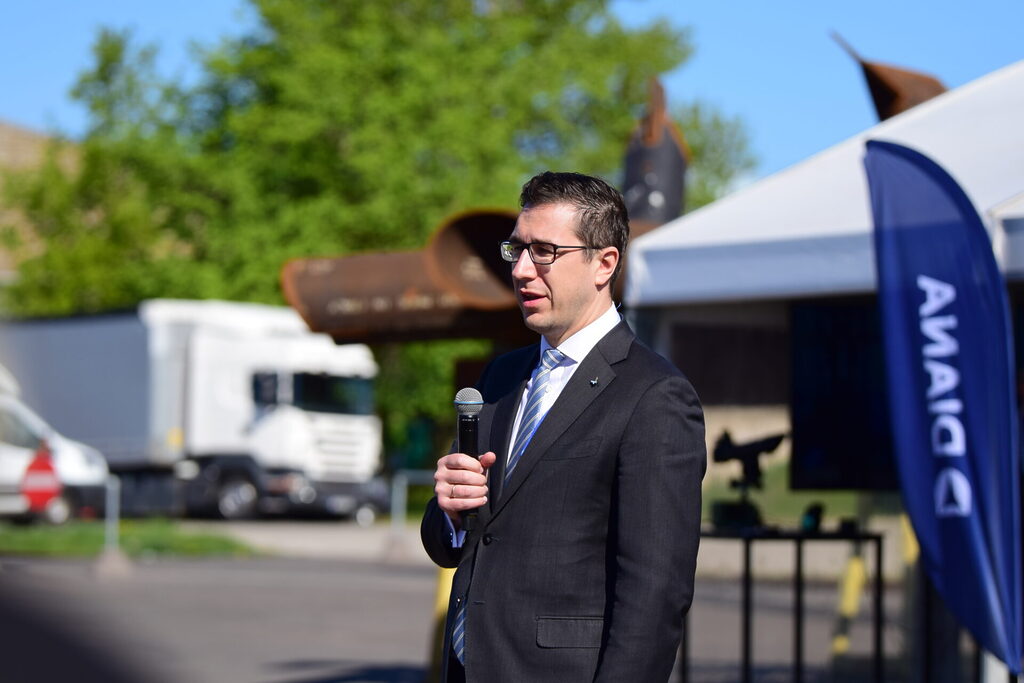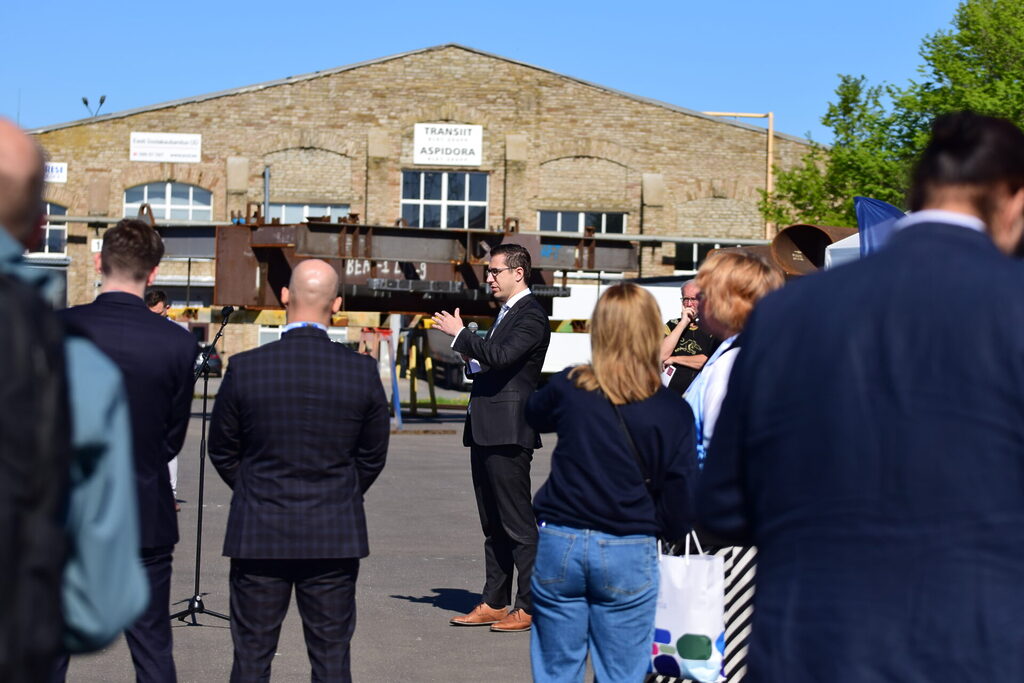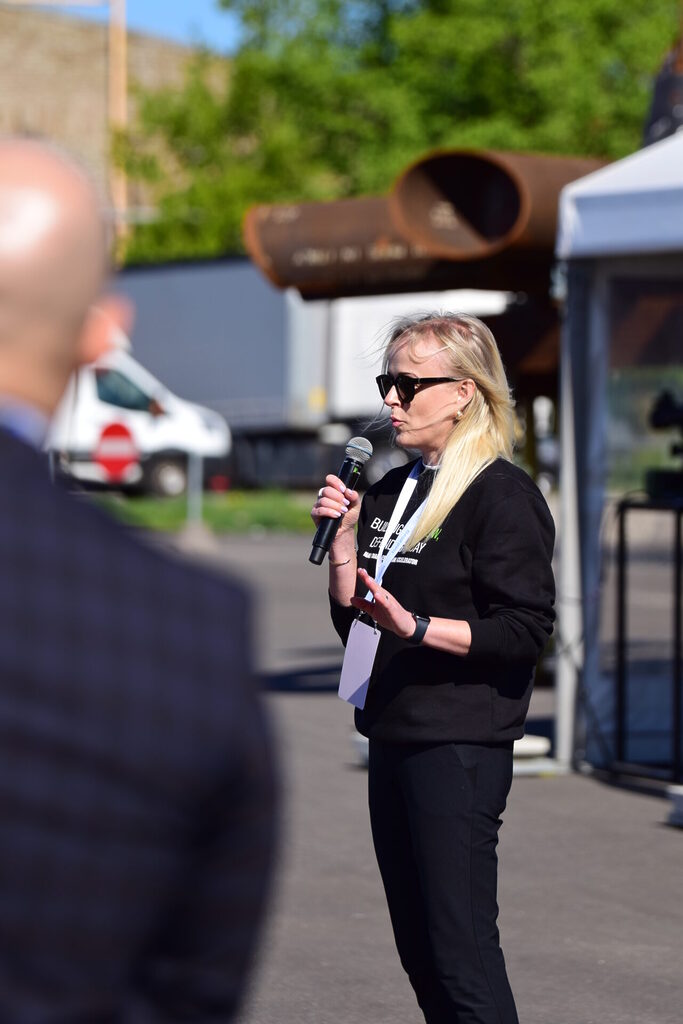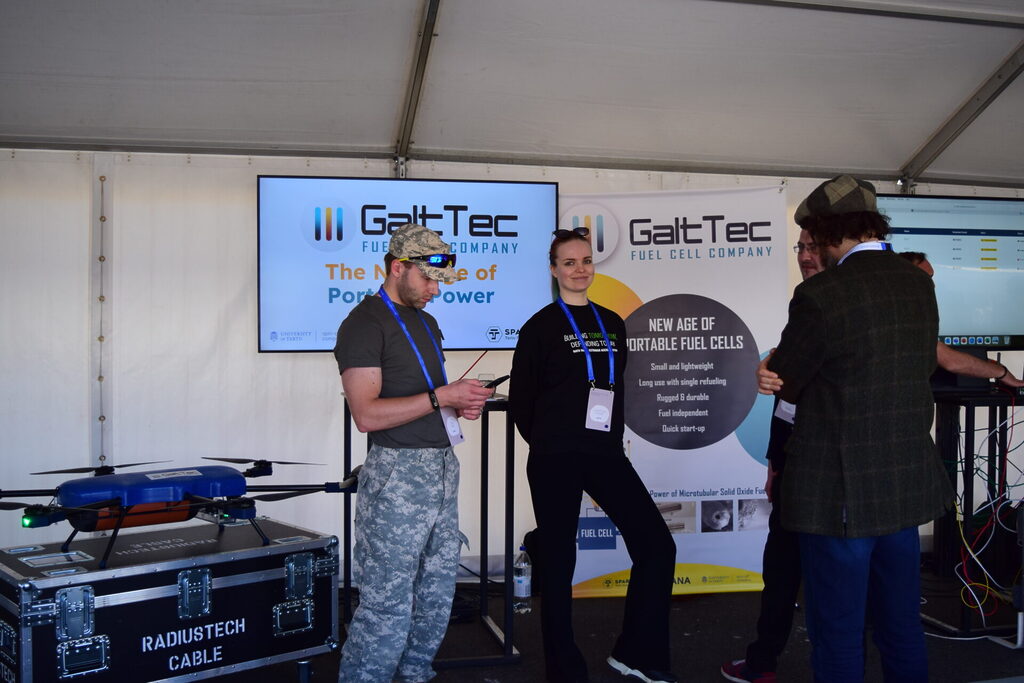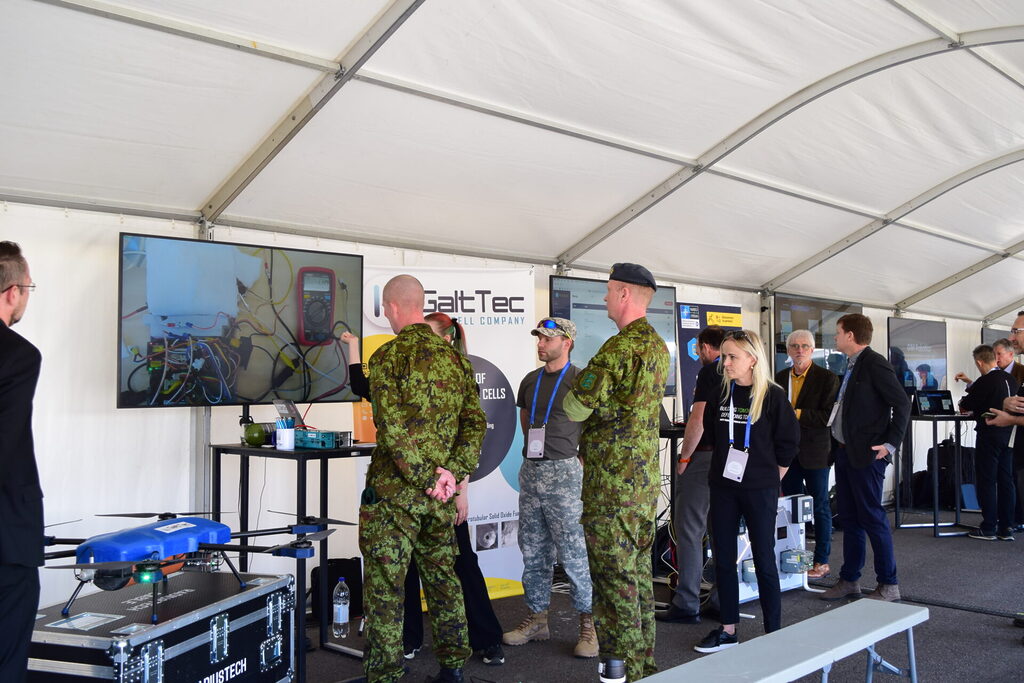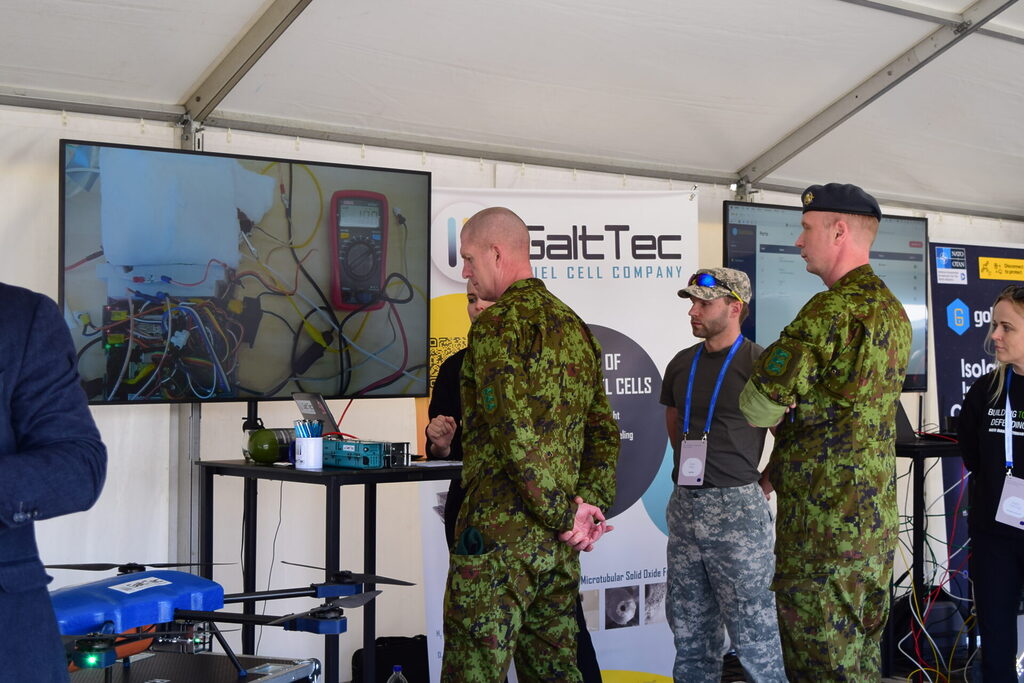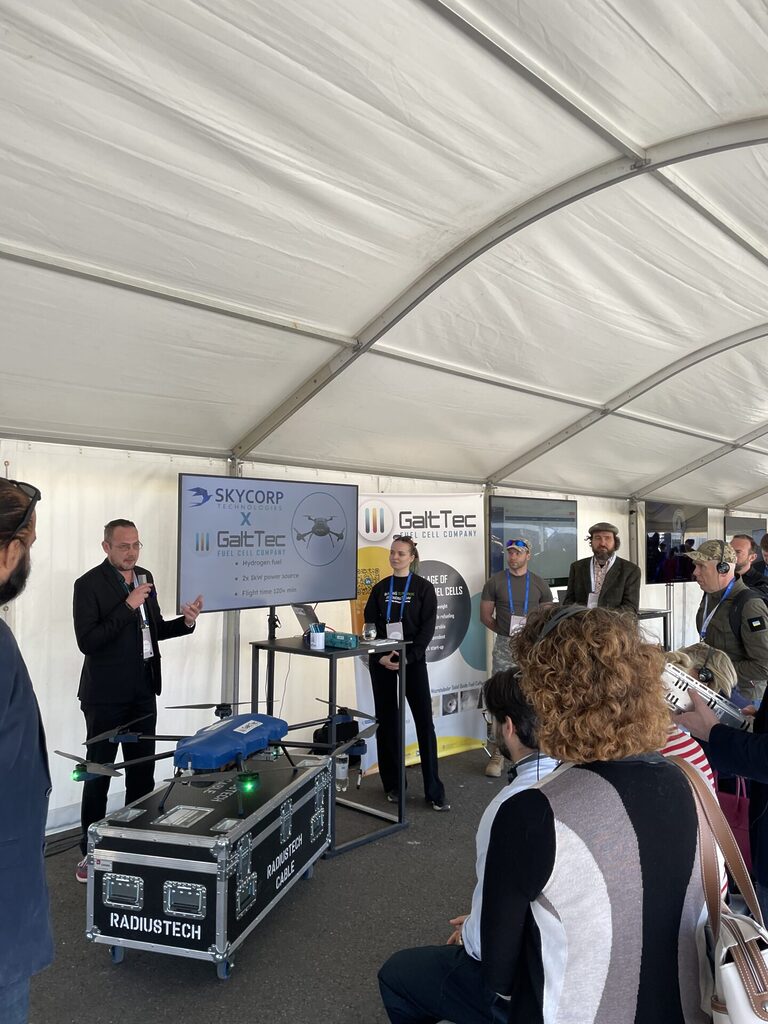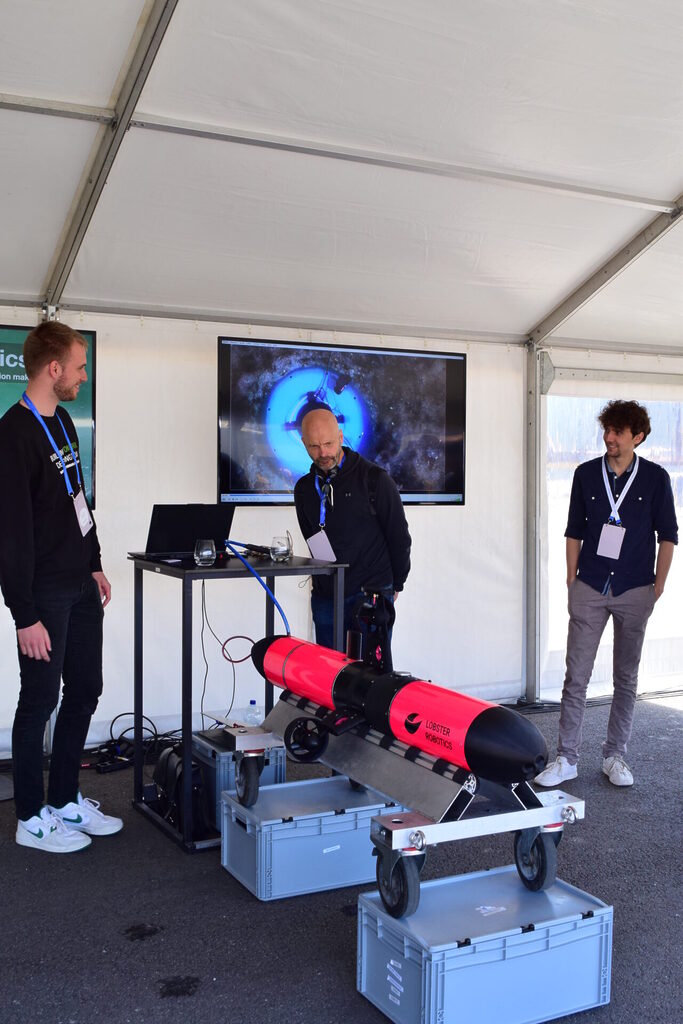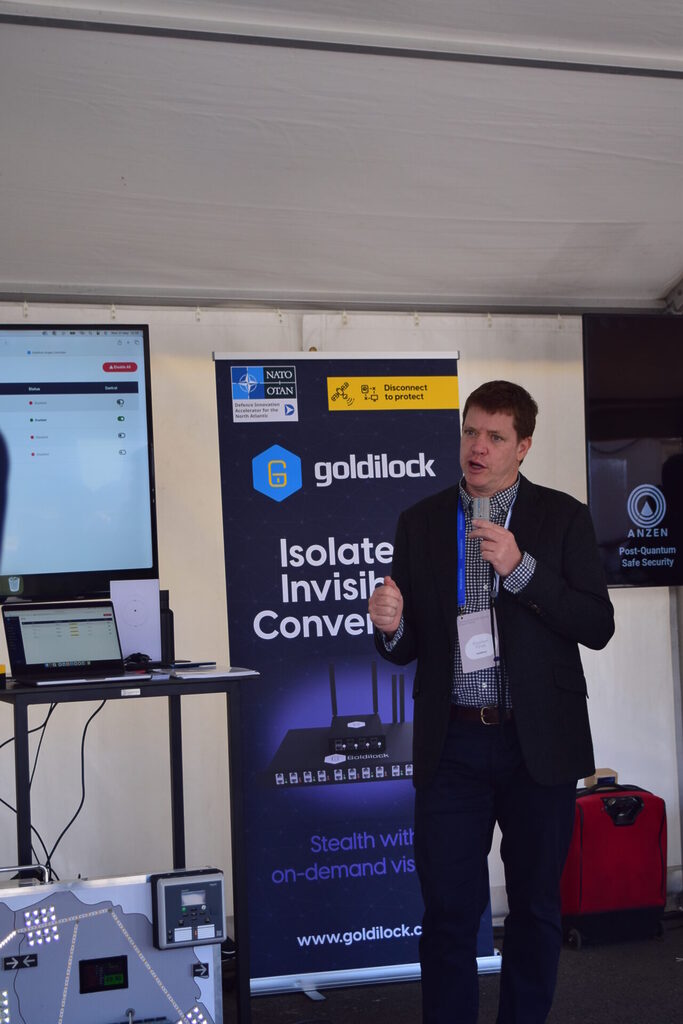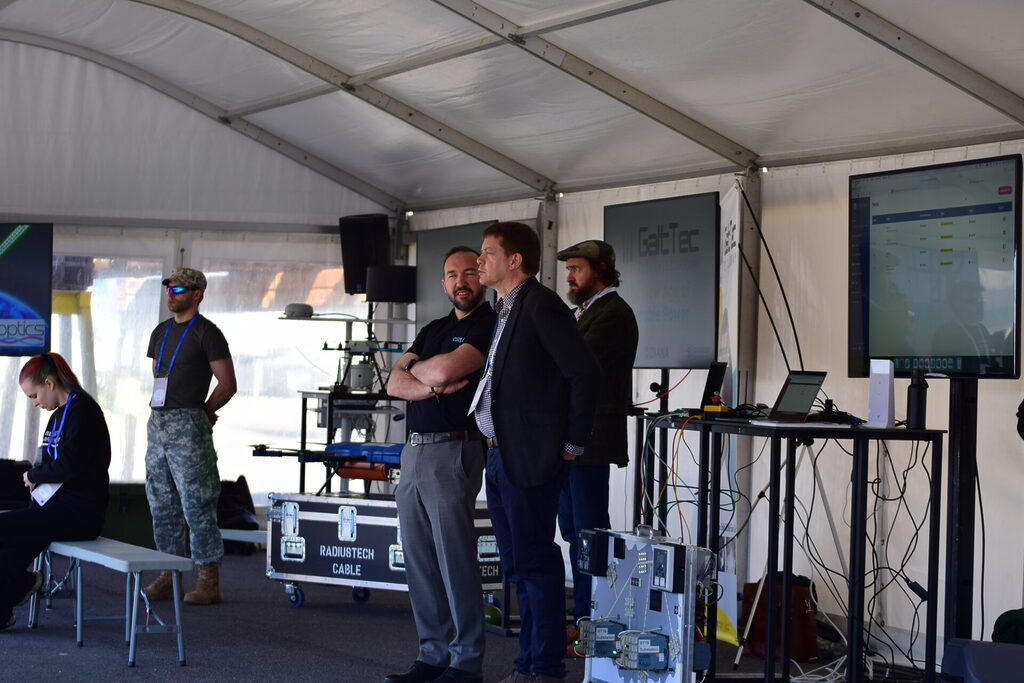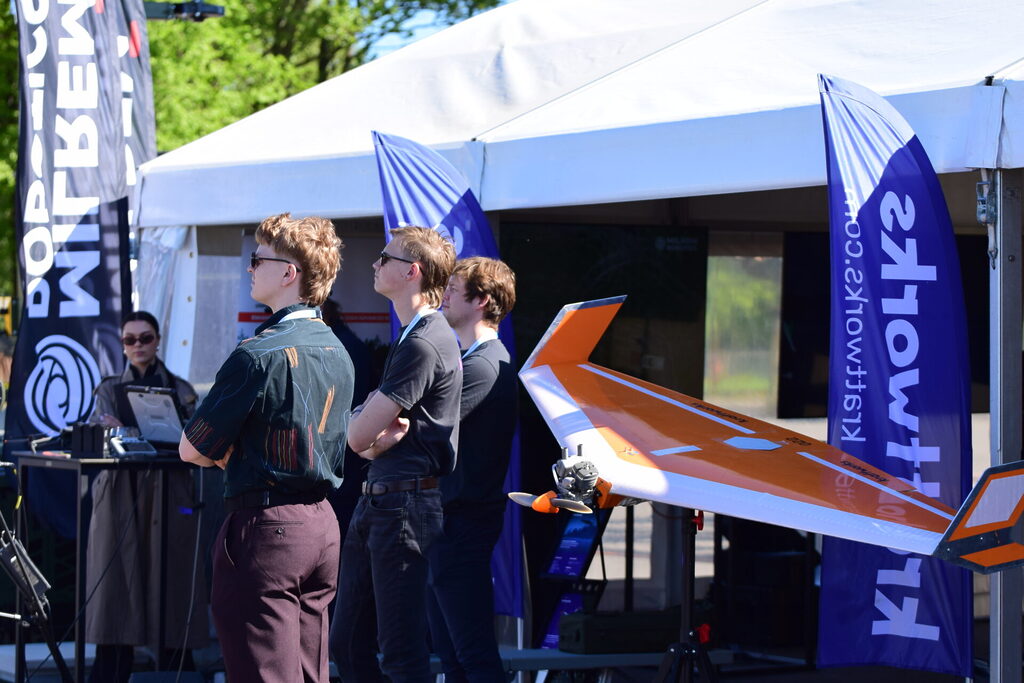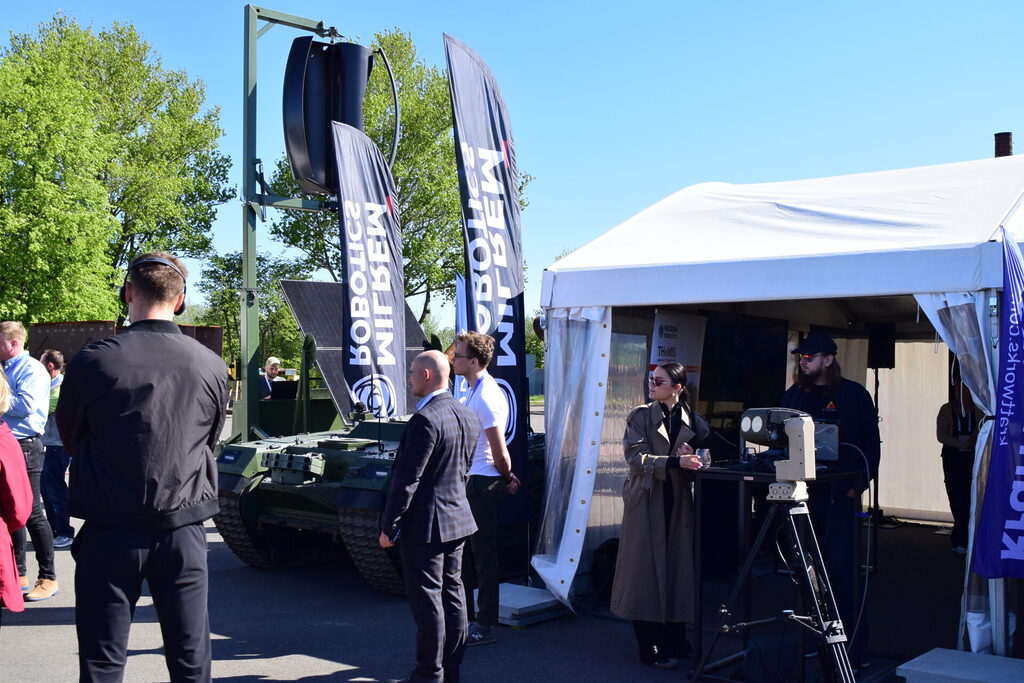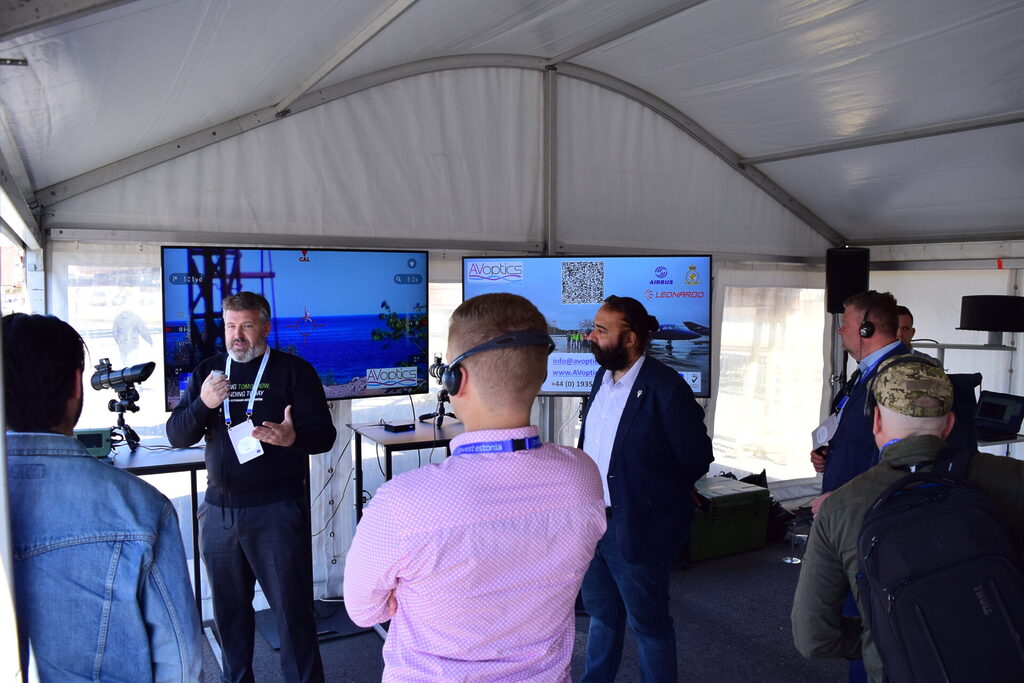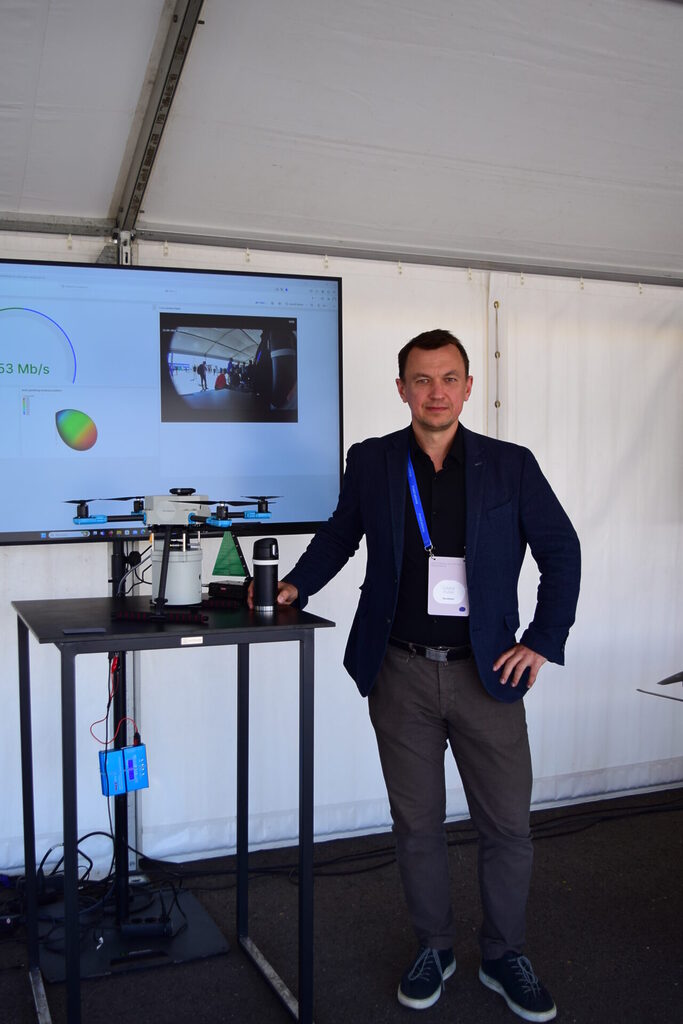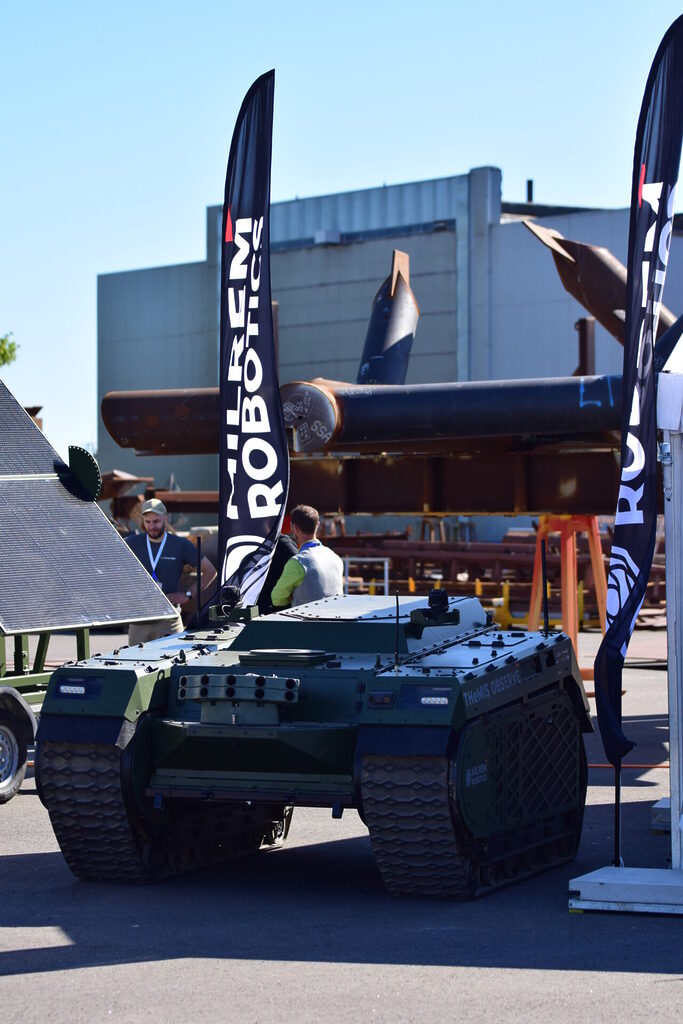23.05.2024
NATO DIANA Accelerator companies showcased cutting-edge defence innovations in Estonia
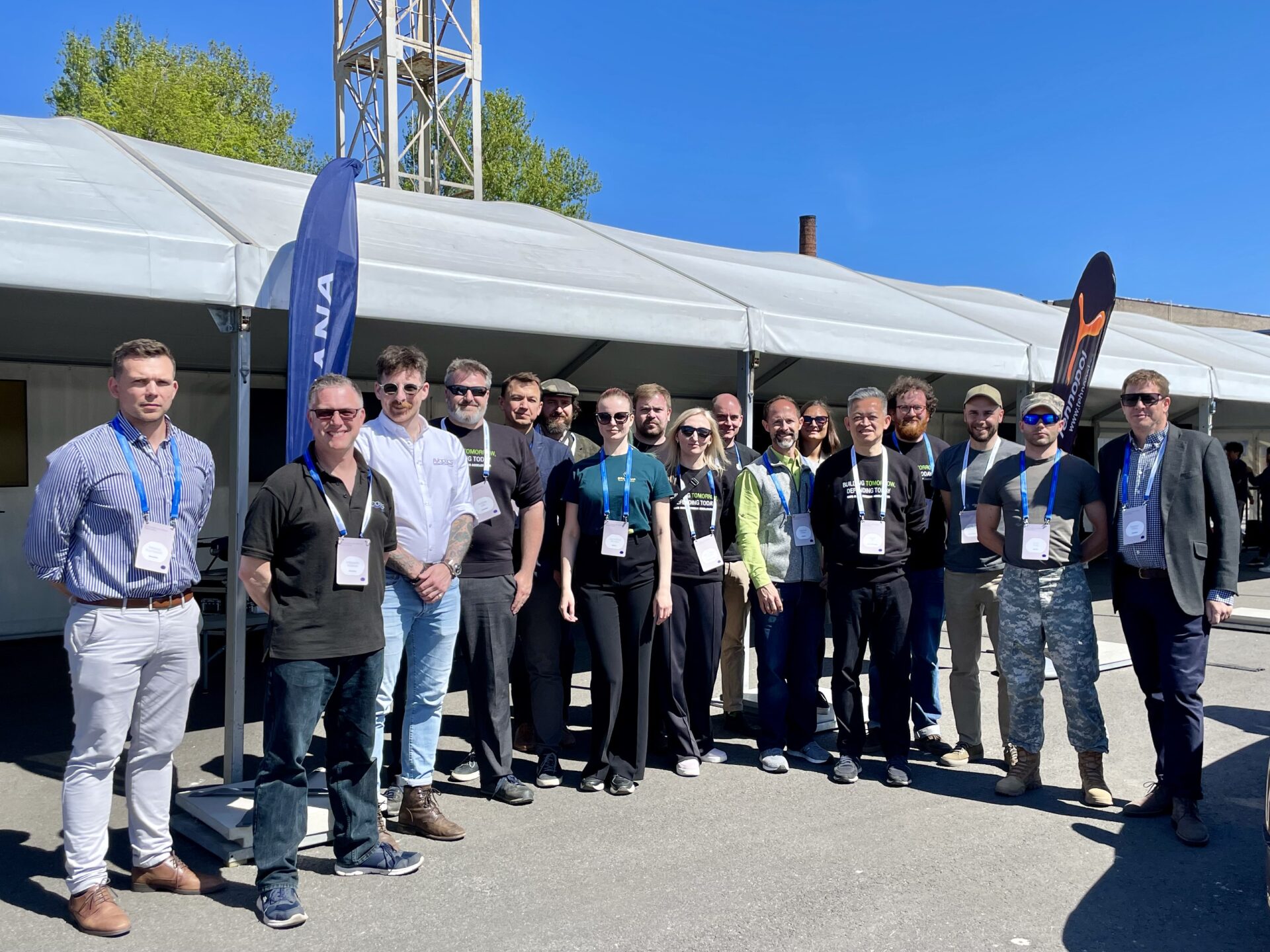
The dual-use technology companies that had been accepted for the NATO DIANA innovation accelerator met in Estonia on 22 May, together with local defence technology companies. High-profile international experts working in the defence industry witnessed the presentations of the technologies that can help to strengthen the defensive capacity of NATO members. The event was attended by NATO staff, investors in the defence industry, representatives from defence ministries, and other experts in the field. The Commander of the Estonian Defence Forces, General Martin Herem, also visited to learn about the solutions from the NATO DIANA accelerator’s companies.
Permanent Secretary of the Estonian Ministry of Defence Kusti Salm opened the event saying: “The Ministry of Defence has been contributing for years to the development of innovative defence technology, and we were one of the pilot sites launching the NATO DIANA programme. I am very pleased to see the first results here. It is important for us that everything that is developed within the DIANA programme should support the improvement of NATO capacity by being useable on the battlefield, and that it should give us an advantage over our adversaries. That makes it particularly important that these solutions can be integrated with the existing defence industry ecosystem, and that they can be tested and get instant feedback”.
Nine international companies have been working to develop their technologies in Estonia over the past five months, working with Estonian experts in defence and putting the technology to the test in a range of test centres.
Head of the NATO DIANA Estonia accelerator and the Tehnopol Startup Incubator Kadri Tammai said that the companies have made remarkable advances within the accelerator programme. “The companies were accepted to the accelerator at the start of January, and although some of them had turnover in the millions, they were all taking their first steps in the defence industry. The teams have by now made great leaps forward in developing their technology, having been able to test their products in some of the world’s best testing centres, and they have put financing plans in place for their businesses moving forward. The key thing for us and for the teams themselves has been that they could get instant and direct feedback from experts in defence and from end users so that the products they were developing would really meet the needs of the defence sector and be integrated with existing capacity”, she explained.
The only Estonian company to win through to the accelerator in the fierce competition against more than 1300 candidates was GaltTec, a startup from Tartu. The company uses patented technology to make fuel cells and materials for fuel cells that are much smaller and more powerful than any others on the market. GaltTec CEO Glen Kelp said that the NATO DIANA accelerator had been a real springboard for launching the work of their company forwards. “The programme was dense but valuable and has been pure gold for a company like us that is just starting up, and it gave us a shortcut to understanding the particular needs of the defence industry. The contacts that we have made through the programme have already given a clear benefit to the business operations of our company”, he said.
Chief Operating Officer of the British company Goldilock that was accepted to the NATO DIANA Estonia accelerator, Stephen Kines, said that they had not been fully aware of the dual-use potential of their solution before entering the NATO DIANA programme. “We have participated in some top accelerator programmes, but DIANA was unique in the quality of the programme content, the mentorship and the exposure to stakeholders, which allowed us to develop our dual-use messaging and technology and so was fit for purpose. In particular, the Estonian Tehnopol team were incredible in their professionalism, ensuring that not only did we individually get the best out of the programme, but that the cohort members were able to work as a team to come up with joint solutions”, he said. Goldilock is developing a patented cyber security tool for protecting critical assets and data.
The next round of applications for NATO DIANA and the next set of critical challenges for the defence sector that are seeking technological solutions will be announced this summer. All dual-use deep tech companies registered in a NATO member state can apply to the accelerator.
The product demonstration event of defence technology companies was held jointly with the Estonian Defence and Aerospace Industry Association and Invest in Estonia. The NATO DIANA accelerator in Estonia is led by the Tehnopol Startup Incubator working together with the Tartu Science Park and the business accelerator Startup Wise Guys. The funding to start the accelerator in Estonia comes from the Ministry of Economic Affairs and Communications with support from the Ministry of Foreign Affairs, the Ministry of Defence and the city of Tallinn. Estonian contributors to building the pan-Alliance network of testing centres are TalTech, the University of Tartu, Foundation CR14, the National Defence College, the Estonian Academy of Security Sciences, and the Estonian Aviation Academy.
